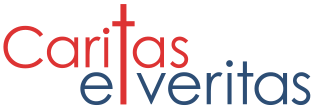Caritas et veritas 2018, 8(2):45-58 | DOI: 10.32725/cetv.2018.035
Integrální výchovou k integrálnímu humanismu: Jacques Maritain a jeho filozofie výchovy
- Jihočeská univerzita v Českých Budějovicích, Teologická fakulta, Katedra pedagogiky, Kněžská 8, 370 01 České Budějovice
Článek se soustřeďuje na pedagogický odkaz díla novotomistického filozofa Jacquesa Maritaina (1882-1973). Jeho filozofie výchovy je hledána zejména v perspektivě personálního a integrálního principu edukace a s ohledem na autorovu tezi o "integrální výchově směřující k integrálnímu humanismu". Článek přináší přehled autorovy pedagogické a publikační činnosti. Jeho dílo Humanisme intégral (1936) usouvztažňuje se závěry autorových zásadních pedagogických děl: Education at the Crossroads (1943), The Education of Man (1963) a Pour une Philosophie de l'Éducation (1959, 1969). Osoba jako ústřední bod Maritainovy filozofie výchovy je nazírána prizmatem požadavku obnovy lidství v současném výchovně-vzdělávacím procesu. Na základě kritické reflexe tehdejších pedagogických teorií dospěl autor k vlastní definici výchovy a vzdělávání a k charakteristice cílů edukace, role učitele a žáka/studenta ve výchovně-vzdělávacím procesu. Vedle těchto závěrů se text zabývá některými aktuálními problémy současného školství z pohledu Maritainova myšlenkového odkazu: např. náboženskou a etickou výchovou, studiem literatury (The Great Books), pedagogikou volného času, celoživotním vzděláváním, problematikou specializace. Závěr je věnován zařazení Maritaina mezi vrcholné představitele novotomistické orientace integrálního personalismu. Jeho pedagogická koncepce přináší holistický přístup, navazuje na perennialistické edukační teorie a představuje pedagogiku hodnot (pedagogiku kultury).
Klíčová slova: Jacques Maritain, integrální humanismus, teocentrický humanismus, neotomistická pedagogika, neotomistický integrální personalismus, filozofie výchovy, principy edukace, náboženská výchova
Zveřejněno: 30. září 2018 Zobrazit citaci
Reference
- Helena HREHOVÁ, Morálna filozofia Jacquesa Maritaina: Reflexie o etike a morálke, Trnava: Filozofická fakulta, Trnavská univerzita, 2011.
- Klára JELÍNKOVÁ, Jacques Maritain v datech, Salve 2/2006, s. 119-124.
- Luz M. IBARRA, Maritain, Religion and Education: A Theocentric Humanism Approach, American University Studies: Peter Lang Publishing Inc., 2013.
- Miroslav CIPRO, Prameny výchovy. IV, 20. století, Praha: Miroslav Cipro, vlastním nákladem, 1995.
- Jacques MARITAIN, Education at the Crossroads, New Haven: Yale University Press, 1943.
- Jacques MARITAIN, Integrální humanismus, Řím: Křesťanská akademie, 1967.
- Juraj LAUKO, Krátký náčrt personalistickej sociálnej filozofie Jacqua Maritaina, Filozofia 3/2005, Filozofický ústav SAV.
- Philippe CHENAUX, Maritain na úsvitu třetího tisíciletí, Salve 2/2006.
- Marek WIESENGANGER, Perspektívy filozofie výchovy podľa Jacquesa Maritaina, Acta Fac. Paed. Univ. Tyrnaviensis, Ser. D 15/2011.
- Jacques MARITAIN, The Education of Man: The Educational Philosophy of Jacques Maritain, vydáno Donaldem a Idellou Gallagherovými, Notre Dame, Ind: Notre Dame University Press, 1963.
- Joaquim D'SOUZA, Education to Freedom: Don Bosco and Jacques Maritain in Tandem?, Journal of Philosophy and Education 1/2006.
- Jiří VAČKÁŘ, Jacques Maritain (18. 11. 1882 - 28. 4. 1973) - výročí, Prostor 25/1993.
- Miroslav CIPRO, Pedagogické směry 20. století v kapitalistických zemích, Praha: SPN, 1966.
- © Andrej RAJSKÝ, Univerzitné vzdelavanie v koncepte integrálneho humanizmu Jacquesa Maritaina (on-line), dostupné na: http://pdf.truni.sk/zborniky/evsuv-2004/sekcia2/Rajsky.pdf, citováno dne 19. 5. 2018.
- Jacques MARITAIN, Pour une philosophie de l'education, Paris: Fayard, 1969.
- Gerald L. GUTEK, Jacques Maritain and John Dewey on Education: A Reconsideration, Educational Horizons 4/2005.
- Jacques MARITAIN, Odpovědnost umělce, Praha: Triáda, 2011.
- Klára JELÍNKOVÁ, Umění ve filozofii Jacquesa Maritaina, Salve 2/2006.
- Jacques MARITAIN, Umění a scholastika, Olomouc: Knihovna filosofické revue, sv. V., 1933.
- Ján LETZ, Novotomistické metafyziky: Křesťanská filozofia 20. storočia a jej perspektívy, Trnava: Typi Universitatis Tyrnaviensis, 2007.
- Karel ŠPRUNK, Rozlišovat ale neoddělovat - rozhovor s Karlem Šprunkem, Salve 2/2006.
- Jean Pierre TORRELL, Svatý Tomáš Akvinský, osoba a dílo, Praha: Krystal OP, 2017.
- Gerald A. McCOOL, S.J., From Unity to Pluralism: The Internal Evolution of Thomism, New York: Fordham University Press, 2002.
- Jacques MARITAIN, Láska a přátelství, Praha: Krystal OP, 2005.
- Raïssa a Jacques MARITAINOVI, Stavy lidstva a svatosti, Praha: Krystal OP, 2011.
- Jacques MARITAIN, Přirozená mystická zkušenost a prázdnota, Salve 2/2006.
- Michael NOVAK, On Cultivating Liberty: Reflections on Moral Ecology, Lanham: Rowman & Littlefield Publishers, Inc., 1999.
- © Donald A. GALLAGHER, Recollections of Three Thinkers: Adler, Simon, and Maritain, dostupné na: https://maritain.nd.edu/ama/Torre/Torre04.pdf, citováno dne 20. 5. 2018.
- Ján LETZ, Personalistické metafyziky: Křesťanská filozofia 20. storočia a jej perspektivy, Trnava: Typi Universitatis Tyrnaviensis, 2006.
- Sabína GÁLIKOVÁ TOLNAIOVÁ, Problém výchovy na prahu 21. storočia, Bratislava: Iris, 2007.
Tento článek je publikován v režimu tzv. otevřeného přístupu k vědeckým informacím (Open Access), který je distribuován pod licencí Creative Commons Attribution 4.0 International License (CC BY 4.0), která umožňuje distribuci, reprodukci a změny, pokud je původní dílo řádně ocitováno. Není povolena distribuce, reprodukce nebo změna, která není v souladu s podmínkami této licence.



